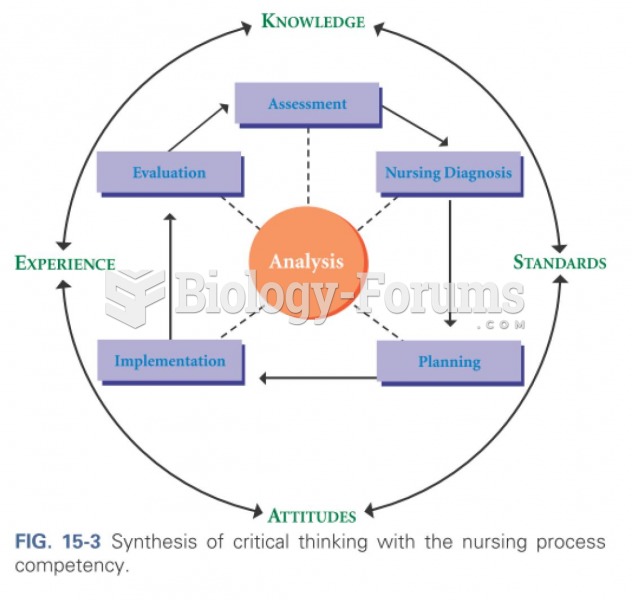|
|
|
Did you know?
According to the FDA, adverse drug events harmed or killed approximately 1,200,000 people in the United States in the year 2015.
Did you know?
Cyanide works by making the human body unable to use oxygen.
Did you know?
In the United States, there is a birth every 8 seconds, according to the U.S. Census Bureau's Population Clock.
Did you know?
More than 150,000 Americans killed by cardiovascular disease are younger than the age of 65 years.
Did you know?
Alcohol acts as a diuretic. Eight ounces of water is needed to metabolize just 1 ounce of alcohol.
 Defensive mutualism involves species that receive food or shelter in return for providing protection
Defensive mutualism involves species that receive food or shelter in return for providing protection
 Elephants do not fully digest their food. Other animals, such as this Baboon may pick through elepha
Elephants do not fully digest their food. Other animals, such as this Baboon may pick through elepha





